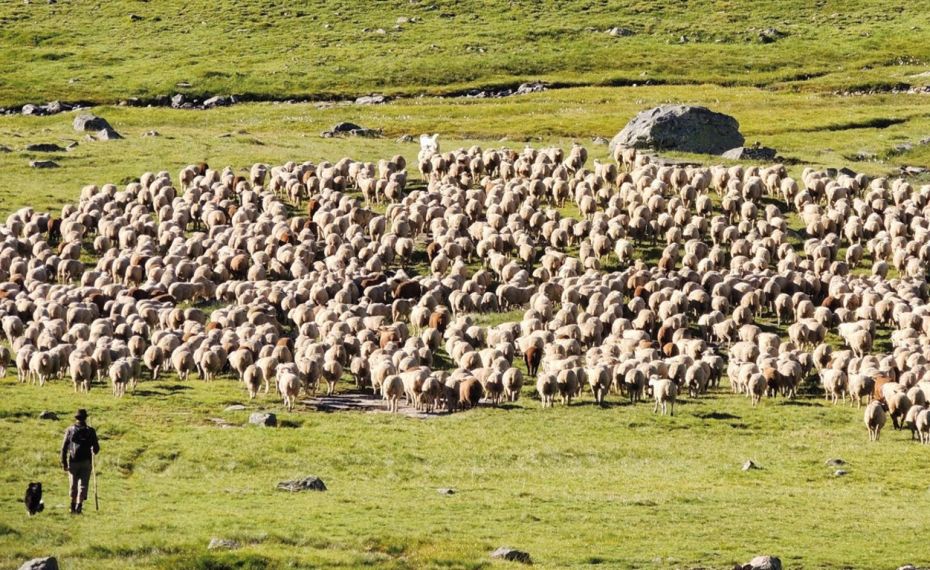The PATHWAy project was awarded by the A*Midex Foundation in the 2018 "International" call for projects and started its activities in January 2020. This project is associated with the project of the same name from the University of York (Department of Archaeology) and funded by The Arts and Humanities Research Council (AHRC).
The project, "Protohistoric to Medieval pastoralism in the Western Alps: The origins and development of long-distance transhumance", focuses on long-distance transhumance, its emergence and development from the Iron Age to the Middle Ages. Transhumance, the seasonal movement of herds along migration routes in the Mediterranean and the Alps, was inscribed on the Representative List of the Intangible Cultural Heritage of Humanity in December 2019. The archaeological and historical approach of the project should make it possible to characterize the composition and structure of domestic herds and to understand their seasonal movements in the Western Alps (France, Italy and Switzerland). PATHWAy will use archaeozoological studies and specific analyses of the teeth and bones of caprine-bovines from archaeological sites (strontium and oxygen isotopic analyses) to determine the origin and mobility of the herds. The study of animal bones collected in significant quantities during recent archaeological excavations in the French Alps and lower Provence will make it possible to understand the role of urban centres in the Alpine pastoral economy and to express the production/consumption patterns of protohistoric and historical societies. Moreover, the coring of alpine lakes will have to specify the impact of pastoralism on high-altitude landscapes, in terms of erosion, changes in vegetation...
To this end, PATHWAy brings together a complementary consortium of specialized teams from the Aix-Marseille research site, the Camille Jullian Centre (CCJ) for its expertise in human-environment relations, the Alpine arc and agro-pastoral practices, the Mediterranean Laboratory of Prehistory Europe Africa (Lampea) and the Laboratory of Medieval and Modern Archaeology in the Mediterranean (LA3M) which will conduct the archaeozoological studies. Two other French laboratories are contributing to the project: EDYTEM in Savoie, for the coring and analysis of sediments from Alpine lakes, and TRACESin Toulouse, for its expertise in medieval agricultural practices.
PATHWAy is also the result of a long tradition of scientific cooperation between the Camille Jullian Centre and the Department of Archaeology at the University of York on common issues related to the history of settlement dynamics and landscapes in medium and high mountain territories and the Mediterranean basin. The University of York provides expertise in landscape archaeology and the University of Southampton in bioarchaeology. This project thus reinforces an already strong scientific collaboration, which in 2019 has led to a Convention for International Research Cooperation.
This project is subsidised up to 182 023 € by the A*Midex Foundation within the framework of the 2018 "International" call for projects. It benefits from an international co-financing from the University of York (AHRC) up to €927,000.
PATHWAy project website
Coordination (France)
Florence Mocci (CNRS - CCJ)
Pierre Magniez (AMU - Lampea)
Coordination (United Kingdom)
Kevin Walsh (University of York)
Alistair Pike (University of Southampton)
David Orton (University of York)
Partners
- Aix-Marseille University - CNRS (Camille Jullian Centre, Mediterranean Laboratory of Prehistory Europe Africa, Laboratory of Medieval and Modern Archaeology in the Mediterranean)
- University of York (Department of Archaeology)
- University of Southampton (Department of Archaeology)
- Environments, dynamics and territories of the Mountain (Edytem - Chambéry)
- Archaeological work and research on cultures, spaces and societies (Traces - Toulouse)


